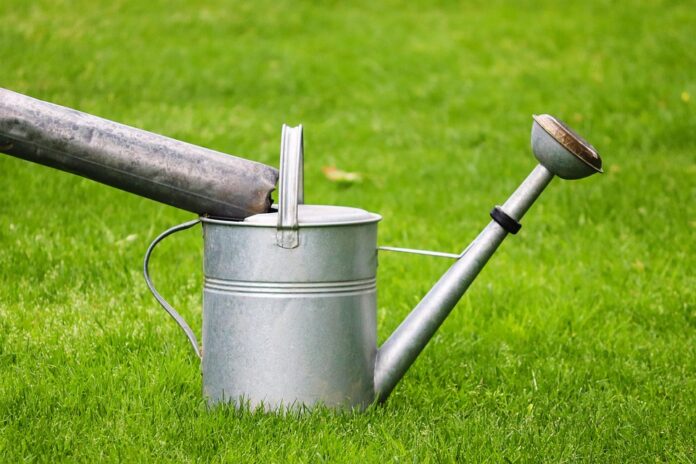Introduction
Irrigation equipment plays a crucial role in modern agriculture, providing a reliable and efficient way to deliver water to crops. Proper installation, operation, and maintenance of irrigation equipment are essential for maximizing crop yields and ensuring the longevity of the system. In this report, we will discuss the key considerations for installing, operating, and maintaining irrigation equipment, as well as provide insights into the industry and financial aspects of this sector.
Installation of Irrigation Equipment
Choosing the Right Equipment
When installing irrigation equipment, it is important to choose the right components for your specific needs. Factors to consider include the type of crops being grown, soil type, water source, and climate conditions. Different types of irrigation systems, such as drip irrigation, center pivot systems, and sprinkler systems, have varying requirements and benefits. Consulting with an irrigation expert can help determine the best system for your farm.
Site Preparation
Proper site preparation is essential for the successful installation of irrigation equipment. This includes leveling the land, clearing any obstacles, and ensuring proper drainage to prevent waterlogging. Adequate water supply is also crucial, so it may be necessary to install a water storage tank or reservoir to ensure a consistent supply of water for irrigation.
Installation Process
The installation process involves laying out the irrigation lines, installing pumps and filters, and setting up control systems. It is important to follow manufacturer guidelines and best practices to ensure the system operates efficiently. Proper installation can help prevent leaks, clogs, and other issues that can affect the performance of the irrigation system.
Operation of Irrigation Equipment
Monitoring and Adjusting Water Usage
Once the irrigation system is installed, it is important to monitor water usage and adjust the system as needed. This may involve scheduling irrigation cycles based on crop water requirements, checking for leaks or malfunctions, and adjusting water pressure and flow rates to optimize efficiency. Regular monitoring can help prevent overwatering or underwatering, which can lead to crop damage or yield loss.
Energy Efficiency
Energy efficiency is another important consideration when operating irrigation equipment. Choosing energy-efficient pumps and motors, optimizing irrigation schedules, and implementing smart control systems can help reduce energy consumption and lower operating costs. Investing in energy-efficient equipment can also help reduce greenhouse gas emissions and minimize the environmental impact of irrigation operations.
Water Conservation
Water conservation is a key priority for many farmers, especially in areas with limited water resources. Implementing water-saving practices, such as using drip irrigation, mulching, and soil moisture sensors, can help reduce water usage and improve water efficiency. By conserving water, farmers can not only save money on water bills but also contribute to sustainable agriculture practices.
Maintenance of Irrigation Equipment
Regular Inspections
Regular inspections are essential for maintaining irrigation equipment and preventing costly repairs. Inspecting the system for leaks, clogs, and worn components can help identify issues early and address them before they escalate. It is recommended to conduct inspections at least once a year or more frequently during peak irrigation seasons.
Cleaning and Maintenance
Cleaning and maintenance tasks, such as flushing irrigation lines, cleaning filters, and lubricating moving parts, should be performed regularly to ensure the system operates smoothly. Neglecting maintenance tasks can lead to decreased efficiency, increased energy consumption, and potential system failures. Following a maintenance schedule and keeping detailed records can help track maintenance activities and identify any recurring issues.
Repairs and Upgrades
Inevitably, irrigation equipment may require repairs or upgrades over time. It is important to address any issues promptly to prevent further damage and ensure the system continues to operate effectively. Upgrading to newer technologies or more efficient components can also help improve the performance and reliability of the irrigation system. Working with a qualified irrigation technician can help diagnose problems and recommend the best solutions for repairs or upgrades.
Industry Insights and Financial Data
The global irrigation equipment market is expected to grow steadily in the coming years, driven by increasing demand for agricultural products and the need for efficient water management practices. According to a report by Grand View Research, the global irrigation equipment market size was valued at $28.9 billion in 2020 and is projected to reach $41.2 billion by 2028, with a CAGR of 5.0% during the forecast period.
Key players in the irrigation equipment industry include companies such as Lindsay Corporation, Valmont Industries, Jain Irrigation Systems, and Netafim. These companies offer a wide range of irrigation products and services, including drip irrigation systems, center pivot systems, and smart irrigation technologies. Investing in irrigation equipment from reputable manufacturers can help ensure quality, reliability, and customer support for farmers.
In conclusion, proper installation, operation, and maintenance of irrigation equipment are essential for successful farming operations. By choosing the right equipment, monitoring water usage, and implementing water-saving practices, farmers can optimize crop yields and conserve water resources. Regular maintenance, inspections, and repairs can help prolong the life of irrigation systems and minimize downtime. Investing in energy-efficient and water-saving technologies can also help reduce operating costs and environmental impact. With the growing demand for agricultural products and the increasing focus on sustainable farming practices, irrigation equipment will continue to play a vital role in modern agriculture.




